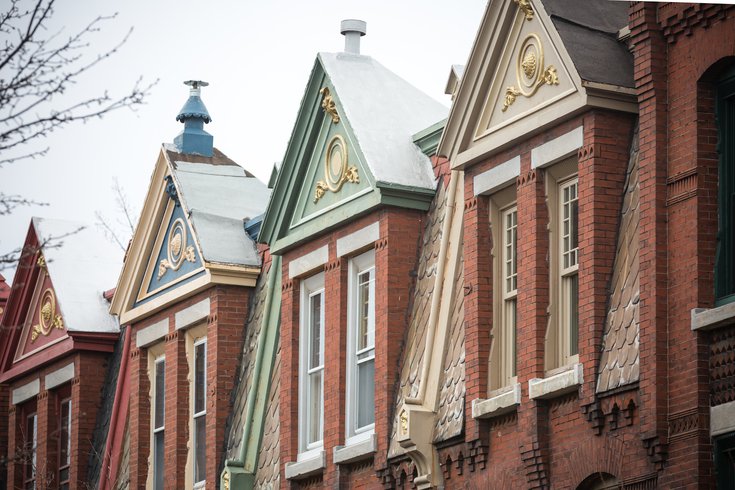
May 23, 2023
 Thom Carroll/For PhillyVoice
Thom Carroll/For PhillyVoice
Philadelphia is one of four cities in the U.S. where it is cheaper to own a home than to rent, according to a recent report from Redfin.
Philadelphia is one of four cities across the U.S. where it remains cheaper to own a home than to rent, even as housing costs rise nationwide, according to a new report from real estate company Redfin.
The report analyzed single-family homes, condos and townhouses across the 50 most populated metropolitan areas in the country, finding that the typical home in Philadelphia, Detroit, Cleveland and Houston has a lower monthly mortgage payment than estimated monthly rental cost. Nationally, the average home costs 25% more to own than rent, the report said.
Philadelphia's median monthly mortgage payment was $1,869 as of March, compared to a $2,000 estimated monthly rental cost for similar properties. This gives Philly homeowners a 6.6% discount on purchasing a home, the second largest discount in the country behind Detroit. Approximately 59.3% of properties available in the Philly metro area, which includes Camden and Wilmington, have a cheaper mortgage rate compared to their estimated rental cost. The number is 19% nationwide.
In nearby Montgomery County, which is listed separately from Philly, the median mortgage payment is $3,601 and the estimated rental cost is $2,954. In the expansive suburban county, which includes portions of the affluent Main Line, only 9.7% of available properties are cheaper to own than rent, with a 21.9% premium cost for homeownership.
"Buying a home often makes more financial sense than renting if you can afford a down payment and monthly mortgage because you're building equity," said Taylor Marr, Redfin's chief economist. "When you own your home, your home pays you; when you rent, you and your home pay your landlord. But buying isn't a feasible option for everyone. Some people move around a lot, so renting might make more sense because they won't be in their home long enough to build equity. Many others simply don't have enough money for a down payment — a situation that has become increasingly common due to rising mortage rates and elevated home prices."
Philly's housing market has long been considered an affordable option relative to other parts of the country, particularly for first-time home buyers. Still, shifts in the population, housing trends and stagnated wages have made the city unaffordable for many people. The average Philadelphian can no longer afford a typical home in the city, which lost 23% of its low-income homeowners between 2010 and 2020, the Inquirer reported.
Low mortgage rates coupled with voracious demand for housing during the pandemic helped U.S. home sales surge to a 15-year high in 2021. While issues with the city's housing inventory preceded the pandemic, the issue was exacerbated by residents looking to take advantage of low costs.
Mortgage rates have since picked up and, coupled with rising home prices, residents are having trouble making the transition from renting to owning or finding a new home. While spring is typically a peak time for the city's housing market, it appears that people are staying where they are, further shrinking the available housing inventory for newcomers and first-time home buyers, WHYY reported.
Home sales in the Philly metro area were down 24% over the last year, according to a February report from RE/MAX. This comes as the city continues to face an affordable housing crisis and renters are paying more each month due to inflation, Axios reported.
Nationally, renters are spending close to 30% of their income on housing. Data from the U.S. Census found that 88,228 Philly renters spend at least half of their income on housing, with some people choosing between rent and food, CBS Philadelphia reported.
While homeownership isn't feasible for everyone, particularly in the poorest big city in the country, mortgage rates nationwide are likely to fall by the end of the year as the Federal Reserve continues to make progress against rising inflation. At the same time, the amount of people renting units in the city is continuing to rise, according to the Economy League.
Cities across the country are unlikely to see the low mortgage rates common in Philly, Cleveland, Detroit and Houston, where home values have stagnated compared to the rest of the country, the report said. Homeowners in Philly and the other three cities can expect to build less equity on their homes compared to areas with pricier mortgage premiums.